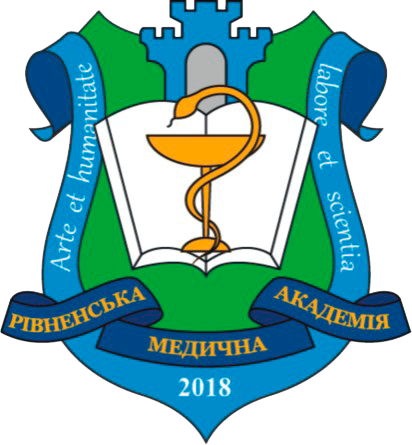METHODOLOGICAL APPROACHES TO THE FORMATION OF AN OPTIMAL RANGE OF ANTIDEPRESSANTS FOR THE INPATIENT TREATMENT OF MARTIAL LAW MENTAL DISORDERS
DOI:
https://doi.org/10.32782/health-2024.1.15Keywords:
pharmacoeconomic research, optimisation of pharmaceutical care, medicines, outpatient settings, inpatient treatment, martial law, mental disorders, range of medicinesAbstract
Martial law in Ukraine has a negative impact on the mental health of the population. Even when a person is in relative safety, it does not provide a sense of complete comfort. Today, the role of social and stressful factors is also growing significantly, including changes in professional and life stereotypes, difficulties in the material and domestic spheres related to the realities of the transition period in the development of society, and the inflation of previously stable social values. Mental disorders occupy a significant place in the structure of the general morbidity rate, and a significant share of them (approximately 30%) is martial law mental disorders (MLD). To optimise the provision of medicines for patients with martial law mental disorders, for the treatment of which antidepressants are mainly used, it is necessary to use optimal methods of pharmacotherapy, taking into account the effectiveness and safety of the medicines used. The formation of an optimal range of antidepressants for the treatment of martial law mental disorders in a hospital setting is possible only if a deep and complete analysis of the wide range of antidepressants available on the modern pharmaceutical market is carried out. Research on optimising the development of an assortment of antidepressants for the inpatient treatment of martial law mental disorders has not received adequate attention. Thus, the development of methodological approaches to the formation of an optimal assortment of antidepressants for the inpatient treatment of martial law mental disorders is relevant. The main medicines prescribed under the MHRA are antidepressants, which are represented by 18 international nonproprietary name and 37 trade names on the pharmaceutical market, and the use of which poses a number of difficulties, such as uncertainty of the course of treatment, polypharmacy, development of adverse drug reactions, and a number of others. In order to identify the factors that influence the incidence of PWPS, and thus determine the supply and demand for antidepressants in the pharmaceutical market, the demographic and social characteristics of the population of patients with PWPS who underwent treatment were studied. The results of the study of the contingent of patients with PWPS indicate that the incidence of martial law mental disorders tends to increase. The analysis identified medicines whose procurement was stable in 2023. The most frequently encountered combinations of psychotropic medications were identified and prescribed by doctors. The mathematical models developed during the correlation and regression analysis made it possible to predict the need for drugs for the treatment of PWPS.
References
Гудзенко О.П., Барнатович С.В. Експертна оцінка стану рецептурного відпуску лікарських засобів на регіональному фармацевтичному ринку та напрями його вдосконалення. Фармацевтичний журнал. 2016. № 3–4. С. 5–11.
Пенькова О.Г., Корман І.І., Семенда О.В. Маркетинговий аналіз фармацевтичного ринку України. Інвестиції: практика та досвід. 2022. № 9–10. С. 16–23.
Схабельник T.С. Інформаційні системи підтримки прийняття рішень в умовах глобалізації фармацевтичного ринку. Теоретичні і практичні аспекти економіки та інтелектуальної власності. 2018. № 18. С. 86–91.
Дорохов О.В., Дорохова Л.П., Чернов В.Г. Нечітко-множинний SWOT-аналіз діяльності оптового фармацевтичного підприємства. Збірник наукових праць Харківського університету повітряних сил. 2008. № 3. С. 160–163.
Косяченко К.Л., Саханда І.В., Негода Т.С. Маркетингові дослідження поведінки споживачів і факторів вибору гіпотензивних лікарських засобів за купівельними характеристиками, соціально-демографічними особливостями та інформованістю. Управління, економіка та забезпечення якості в фармації. 2018. № 3(55). С. 64–69.
Методологія сучасного фармацевтичного маркетингу / І.В. Саханда та ін. Військова медицина України. 2017. № 3–4. С. 134–138.
Приданникова Ю.Є. Прогнозування на основі статистичних методів (кореляційно-регресійний аналіз та метод статистичних рівнянь залежностей). Прикладна статистика: проблеми теорії та практики. 2015. № 17. С. 139–147.
Міронова Ю.В., Грабовецький Б.Є. Використання методу колективних експертних оцінок «Дельфі» для вибору оптимального показника оцінки ефективності використання робочої сили. Вісник Вінницького політехнічного інституту. 2009. С. 33–38.
Лехан В.М., Волчек В.В., Крячкова Л.В., Заярський М.І. Застосування колективних експертних оцінок за дельфійською процедурою в соціально-медичних дослідженнях. Україна. Здоров'я нації. 2017. № 1. С. 62–68.
Надрага В.І. Методи експертних оцінок в управлінні соціальними ризиками. Проблеми системного підходу в економіці. Збірник наукових праць Національного авіаційного університету. 2014. № 48. С. 42–52.
Германюк Т.А., Івко Т.І. Маркетингові дослідження фармацевтичного ринку: теорія та практика. Вісник Вінницького національного медичного університету. 2015. № 2. С. 493–497.
Шостак Л.Г., Постол В.В. Маркетингові дослідження поведінки споживачів фармацевтичних товарів та послуг в аптечних закладах. BBK. 2020. С. 216.
Гончар В. Маркетингова підсистема механізму регулювання фармацевтичного ринку. Modeling the development of the economic systems. 2022 № 4. С. 206–214.
Sakhanda I.V., Kosyachenko K.L., Nehoda T.S. Маркетингові дослідження фармацевтичного ринку гіпотензивних лікарських засобів за купівельними характеристиками, соціально-демографічними особливостями та інформованістю споживачів. Management, economy and quality assurance in pharmacy. 2018. № 3. С. 64–69.
Мельник Ю.М., Образенко М.С. Система фармаконагляду як основа безпеки пацієнта. In The 11 th International scientific and practical conference «Modern directions of scientific research development» (April 20–22, 2022) BoScience Publisher, Chicago, USA. 2022. 440 p.
Правове забезпечення фармаконагляду в Україні та шляхи його вдосконалення / О.В. Крайдашенко та ін. Фармакологія та лікарська токсикологія. 2017. № 2. С. 86–91.
Nemchenko A.S., Lyadenko A.V. Аналіз епідеміологічного стану психічних розладів та фармацевтичного забезпечення пацієнтів лікарськими засобами урядом України. Farmatsevtychnyi zhurnal. 2022. № 1. Р. 40–49.
Парамош О.В. Профілактика небезпечних взаємодій лікарських засобів для лікування хворих з психічними розладами. Український вісник психоневрології. 2011. № 3. С. 61–64.
Галич М., Галич Я. Детермінанти появи й особливості виявів психічних поведінкових порушень в умовах воєнного стану. Юридична психологія. 2023. № 32(1). С. 51–59.





